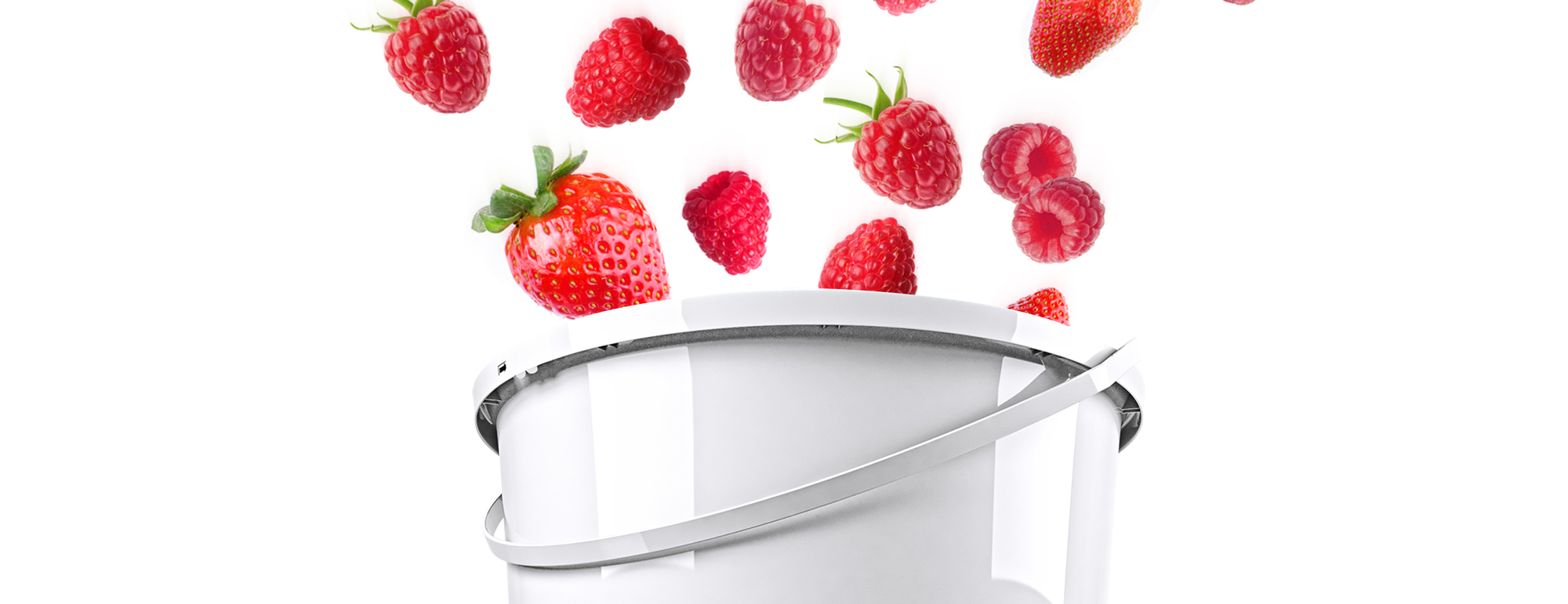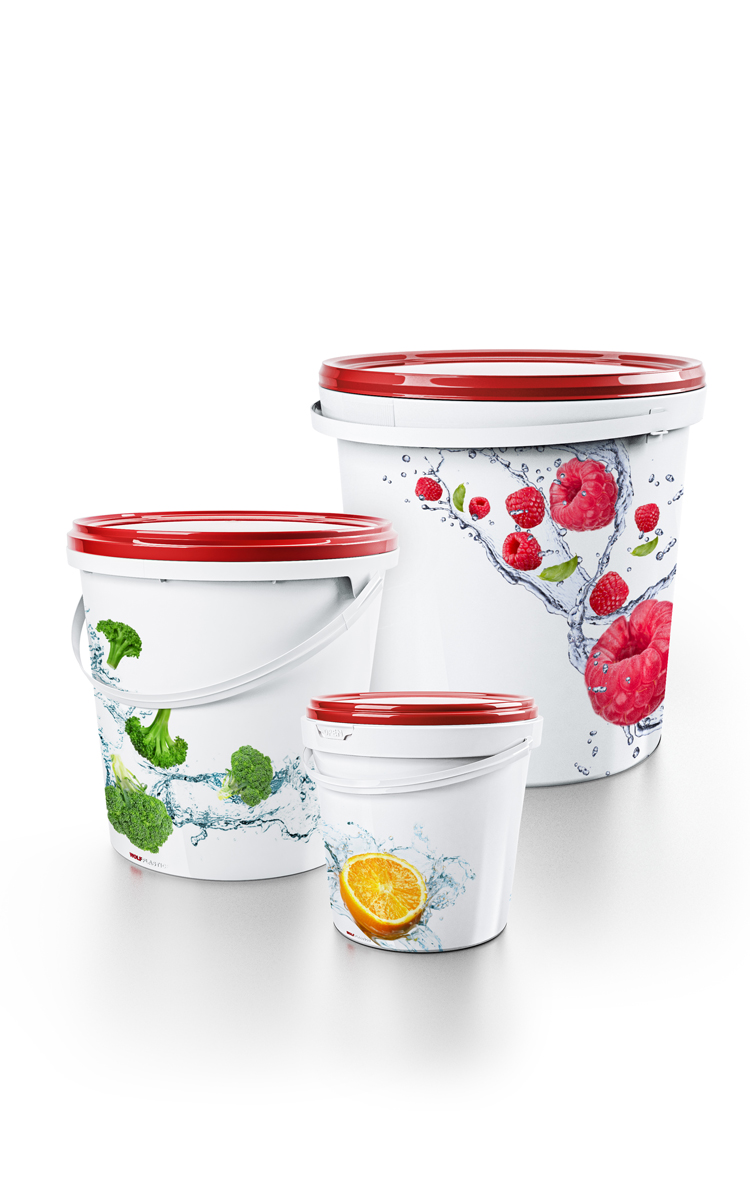
Making
benefits
appetising
26
September, 2018
The continuing widespread rise in the use of plastic packaging in the food sector is due to numerous tasty developments which increase the appetite not just at ALPLAindustrial.

Growing all the time, both in terms of sales figures and enquiries. New product types, attractive in-mould labelling (IML) and benefits in logistics ensure that plastic packaging in the food sector is becoming increasingly popular. This applies not only to dairy products but also to meat, honey, jam, mustard, ketchup, mayonnaise, large packs of biscuits and other sweets. These are the products represented in the ALPLAindustrial portfolio. The company saw the opportunities in the food sector at an early stage and addressed the specific requirements of the producers. Now that this trend is increasingly becoming standard within the industry, the company benefits from the forward-thinking infrastructure it has established and its head start in terms of know-how.
Deep understanding of preferences
Know-how is a broad term, says Mónika Illés, sales manager at ALPLAindustrial’ Hungarian production plant in Fertőszentmiklós, which specialises in food packaging. Contrary to what you might expect, she does not go on to list the latest high-performance machinery the company has recently acquired. Nor is the sterile environment created specifically for fully hygienic production mentioned initially. Instead, Mónika Illés starts off by explaining the national culinary preferences to the Austrian visitors – the lard which is used in large kitchens, restaurants and canteens, for example, or the mixed pickles containing gherkins, cabbage, peppers and onions which are a popular side with meat dishes in Hungary. The underlying message is clear: you need a completely different, deeper understanding for the food sector. After all, the way to a man’s and woman’s heart…
Meat products, honey, jam, ketchup, mayonnaise and large packs of biscuits and other sweets – ALPLAindustrial saw the opportunities in the food sector early on and addressed the specific requirements of the producers.
All this is based on frequent, new developments as offered by ALPLAindustrial to its customers to meet their needs. These include the 580 ml and 2.3 litre, 2.6 litre and 4.5 litre buckets which recently went into series production. The latter are primarily of interest to the bakery industry. Often, however, it is the other way round: food producers already approach ALPLAindustrial with specific wishes. Mónika Illés cites some successful examples of this: an ice cream producer who needed a partially IML branded, partially transparent dome lid for its 500 ml and 1 l tubs, or the well-known Hungarian company Benei which was looking for a new packaging unit due to tetraphobia (fear of the number 4) in East Asia. In China the number 4 sounds like the word for death, which is why this number is avoided everywhere. “Our 400 gram buckets couldn’t be used. We had to produce a new 300 gram bucket with IML especially for our customer,” Illés explains. It is orders like these which, according to Illés, ALPLAindustrial are always delighted to receive. Because it gives them the opportunity to demonstrate the flexibility and efficiency the company has already attained in the food sector with its plastic packaging. “The customers know that when they need something from us we can be extremely fast. We are with you within days,” says the sales manager. “We are able to offer short lead times while maintaining high quality. We also have the edge with IML for buckets and lids. Companies seem to adore this technology!”
Top hygiene standards
The three independent production facilities in Austria, Romania and Hungary are, of course, essential here. Inside the production buildings in Fertőszentmiklós, near Sopron, you can see how smoothly and to what high hygiene standards the new products in the food sector are created. ALPLAindustrial has expanded its range of machinery here, added a new air conditioning system and, when the workers appear in the separate sterile area in their compulsory protective clothing, it becomes clear that production takes place in accordance with the stringent food contact criteria.
And so belts can be loosened even further soon to accommodate the growth, ALPLAindustrial has an eye on the potential of the future market.

